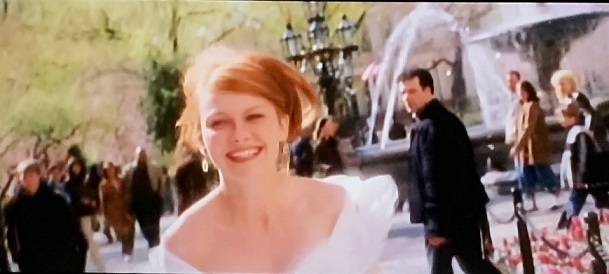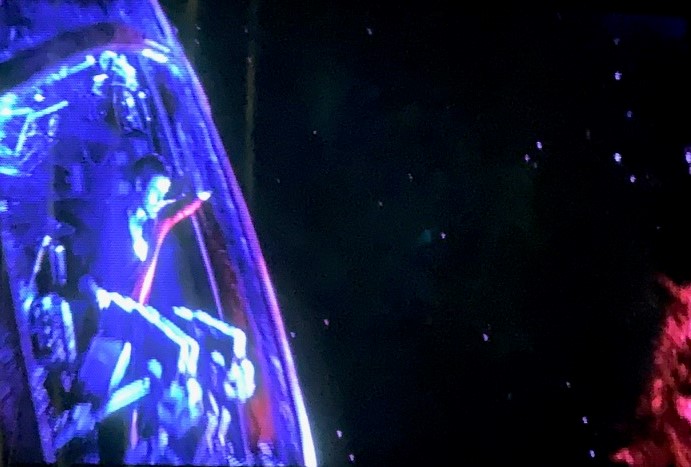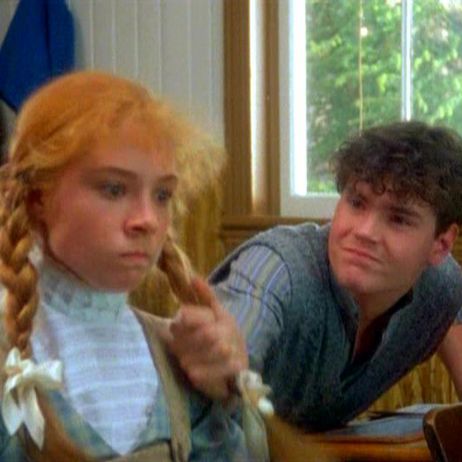|
Word Gems
exploring self-realization, sacred personhood, and full humanity
Soulmate, Myself:
Omega Point
Kairissi & Elenchus:
XVII
return to "contents" page

Elenchus. I thought we had finished our conversation, but I need to add something.
Kairissi. (silence)
E. We are having these discussions within the framework of “Omega Point” - the destiny and evolvement of human beings. We, the two of us, are but one couple within a vast multitude of potential Twin-Soul unions. And my focus right now is drawn toward what it takes, in terms of maturity, to be worthy, so to speak, to enter the eternal marriage.
K. We’ve learned that not only people of the Earth are unknowledgeable about Twin love but, even in Summerland, most have never heard of this.
E. That’s what “The Wedding Song” and other Spirit Guides have said. Most Twins come together in worlds beyond Summerland.
K. This fact alone suggests that the Twin marriage is not something that you can just fall into so easily. Most are not ready, and are far from ready.
E. Acquiring enough spiritual maturity to enter the eternal marriage is no small accomplishment.
K. It would have to be something special, wouldn’t it, because we’re not talking about “John and Mary”, together only for a term of years, but Twins are the real deal, and they’re “in contract” for eternity.
E. Your point is well taken, and preparing oneself for an eternal marriage is no light matter.
K. I mean, think of it! a marriage to last an infinite number of eternities!
E. This means that when a couple has been together for a million or a billion years, they'll still have an infinite number of years ahead of them.
K. It's almost frightening, isn't it. But we talked about this in the "terror of eternity" article.
E. But it’s only a problem if “John and Mary” enter the equation. With them, they take the ego with them wherever they go, and that spoils everything.
K. And so the real problem is, how to defuse the ego.
E. The dysfunctional ego, as we’ve discussed many times, is the cause and root of all evil in the universe. There’s an “inset box” written by the author on this subject, and I’d like to bring it to our attention and then comment.
K. Very well.
|
Why do family members, old friends, and romantic mates drift apart or even abruptly split?
When my daughter was in high school, she had a girlfriend; the two seemed inseparable. Later, the friend chose an alternate lifestyle, assumed that she’d be judged, then abruptly, and permanently, broke off friendship ties.
An example of my own: In the “Evolution” article I recounted that in senior-high English class I’d delivered a speech on the subject of “Creationism versus Darwinism.” Almost all of it, as I now perceive, was error. However, a good friend since childhood disagreed, summarily rejected me, and put me away with no reconciliation.
the hidden cause of all conflict
Each of us, likely, could offer scores of such examples. Krishnamurti’s teachings on the ego – concerning dualism, fragmentation, separation, division – are not of mere academic interest only to professional philosophers. This information holds the sacred key to understanding why planet Earth is the stage for war and conflict, not just on the international level, nor solely with religious or political groups, but also among family members, friends, and lovers.
Why do people drift apart or become immediate enemies? The short answer is that they become an offense to each other. People identify with, make themselves equal to, belief systems which, they assume, will "make me happy." They say "this is who I am," and "this is what I need to be safe and happy," and if you represent something different, their self-image will be threatened, their prospects of safety and happiness will seem to fold - and then you'll be rejected, no matter the strength of former bonds of amity. You'll be rejected because, don't you see, it's a matter of life-and-death to the ego.
the carefully crafted self-image
In his 17.December.1969 lecture, Jiddu Krishnamurti offers one of the most clear and insightful explanations concerning the inner workings of this dark dynamic. When we feel offended by someone, he said, “there is an image about yourself,” one that we ourselves build. This ego-image reflects one's cultural “conditioning.” Why do we build this image? We do so “as a means of security ... of protection ... of being somebody.”
fear is behind the curtain
And what do we find if we draw back the curtain of this ego-image? “Now, if you go behind that," Krishnamurti says, "you will see there is fear.” What is the composition of this fear? It is the existential fear of "I don't have enough" because "I am not enough."
Let’s analyze this ego-image more closely. Why do we build it? What are we protecting? If we allow ourselves to become very still, if we taste and sample the nature of this hidden fear, we will find that we’re protecting a self-image, a mental projection of what the ego would like to be and have:
“I am the person who needs to be seen as virtuous, respected, worthy of honor. And it goes without saying that I know what’s best for you.”
“I am the person who needs to be seen as right and correct. As such, I need you to believe as I do, to agree with all of my religious superstitions, and my self-serving political views. I need you to accept all of my inflexible opinions because your assent makes me feel, not just safe and secure but, that I’m worth something.”
“I am the person who needs to be seen as successful, 'in the know,' and winning. I want you to be impressed with what I am and what I have so that I’ll be counted as a somebody. I need these merit badges so that I can face my peer group, family, and community and be considered important."
“I am the person who craves to be viewed as a wise person, an in-demand friend, a counselor with ‘the answers.’ I count on you to offer me this prestige so that I can feel good about myself.”
"I am the person who grew up on the 'wrong side of the tracks.' My family culture held great disdain for education and knowledge. This disrespect for anything truly progressive has always held me back, creating for me a self-image of 'I’m not smart enough to succeed. I can't get a high-paying job, that's for other people.' And so if you come to me and suggest that, in fact, I do possess talents and strengths, then I will feel very uncomfortable, begin to panic, as you attempt to lead me out of my dysfunctional comfort-zone. At the first sign, with your help, that I I could actually advance myself, I’ll fall apart, swoon in terror, and then begin to blame you, and hate you, before I retreat and crawl back under the safety of my rock."
"I am the person who is comfortable with present ideas. They've gotten me this far (sort of). And they may be half-baked, a straw-house of illogicality, but, even so, these irrationalities offer a certain veneer of meaning to my life. In support of this charade, I surround myself with so-called friends with whom I share a tacit agreement, an unspoken pact: 'You must agree never to point out the non sequiturs of my beggarly superstitions, and I will agree to act as if I accept yours.' That’s the conspiratorial deal. However, if you come along with hard empirical evidence, well-reasoned positions, and suggest that I might want to take a more honest approach to what I believe to be true, well then, I will have to hate you for upsetting the applecart of my entrenched and time-honored unreasonableness."
"I am the person who carries on the traditions of my family. Unfortunately, these are more like peculiar shibboleths, marks of tribal distinction, but not of honor and dignity. I feel duty bound to ask, “What would mother do?” or “This isn’t the way dad did it.” I don’t have enough self-respect to live my own life, follow my own insights, quest for my own meaning and destiny. And if you come along and encourage me to think for myself, to break the apron strings (years after mom passed on), I will feel frightened, disoriented. And then I will blame and hate you for pushing me toward autonomy, full personhood, and self-realization."
“I am the person who needs you to make me happy. You can be my friend/lover/relative if you do exactly what I say and think just as I think. Anything less than this will be threatening to 'who I am.' I need you to love me -- just as I am, with all of my soft-underbelly beliefs -- to compliment me, to defer to me, so that I can judge myself as ok. Don't let me down, I warn you.”
“I am the person associated with you, and if you disappoint me, if you fall short of my expectations - especially after all I've done for you - if you fail to make me happy, if you begin to take on contrary opinions, then you will become an opposing force to what I want and to the image I’ve created for myself. If any of this happens, then, of course, I’ll have to get rid of you, even though we’ve meant much to each other over long years. I'll have no choice but to shun you.”
And so if anyone – sibling, friend, lover, child, parent -- stands as opposition to any of these ego-images, then the offending person will immediately be counted as an enemy, no matter a long history of cordial relation.
a closer look at the hidden fear
We find there’s more than one curtain to open. The ego’s need to be seen as right, virtuous, properly religious or political, is not the only hidden agenda. As one pierces the levels of self-obfuscation we discover the core terror which vivifies all of the ego’s activities. It’s the fear of death. This is the central terror, as we learn from the great psychologists.
This means that when one is attacked, there may be purported surface issues, but the real reason people rage and become apoplectic is the ego fighting for its life. It's identified with, made itself equal to, being right, virtuous, and all the rest, and if it fails to promote itself with these "images," then it will face a kind of psychological death. “Who will I be?” it asks, if these false-security images are minimized or taken away?
the high cost of following the truth wherever it leads
All this is most dire. The reality is, if you assiduously pursue the truth, no matter the cost or where it might lead, then you will lose (for a time) almost every last person who was once close to you. Why must it be so? - because you will become a living, walking threat to another’s carefully crafted self-image.
narrow gate, without fellowship
Editor's note: In his writings, Andrew Jackson Davis warns of the "narrow gate" that leads to life; few be that enter it. Those who live courageously by following the truth wherever it leads, as Davis points out, “will walk a pathway without fellowship of thy earthly brethren.” The cults have long employed the weapon of excommunication, shunning, and ostracization - a forced separation from friends, workmates, and family - toward anyone who disagrees with the hive mentality. This putting away occurs not just in religion but in dysfunctional families, corporations, academia, politics, and other power-seeking groups. They’re afraid of contrary opinion which might disembowel and expose shallow teachings. And so they’ll get rid of you for spreading "misinformation"; and you, as a truth seeker, will be censored and required to make your way through this world “without fellowship of thy earthly brethren.” But, be assured, a day of reckoning is but one missed heartbeat away.
We, ourselves - not some mythical Satan - are the focal point of all evil in the universe. It’s the pathological ego within; it’s the false self, the ego-images, ever attempting to find safety and security for itself, to bolster an inner neediness, the existential emptiness deep within.
We cannot become truly educated, nor reach a good level of wisdom and maturity, in the highest and best sense - or meaningfully prepare ourselves for Summerland or to be with one’s Twin Soul - without understanding the wiles and machinations of our own personal “heart of darkness.”
please, it’s very impolite of you to notice that I lack a self
Soren Kierkegaard: “But in spite of the fact that man has become fantastic in this fashion [i.e., lives unrealistically by denying his own mortality and impending death, the terror of which is covered up by palliatives such as ritualistic, form-based but empty, religion], he may nevertheless … be perfectly well able to live on, to be a man, as it seems, to occupy himself with temporal things, get married, beget children, win honor and esteem – and perhaps no one notices that, in a deeper sense, he lacks [an authentic] self.”
|
K. Elenchus, “Omega Point” is much more than “let’s get enough maturity so we can get married as Twins.” All that is well and good, but there’s much more at stake here. “Omega Point” is about reaching “the next level” of human evolutionary development. When we achieve that, we get the eternal Twin marriage for free.
E. That’s a really great way of putting it, Kriss – “we get the eternal Twin marriage for free.”
K. Look at the inset box, all those examples of the ego's false images. We were posterkids for quite of few of them, especially back then, but even in recent years.
E. Tell me what you see.
K. Well, here’s a ripe one:
“I am the person who needs you to make me happy. You can be my friend/lover/relative if you do what I say and think as I think. I need you to love me, to compliment me, to defer to me, so that I can judge myself as ok.”
K. And the next one, too:
“I am the person associated with you, and if you disappoint me, if you fall short of my expectations - especially after all I've done for you - if you fail to make me happy, if you begin to take on contrary opinions, then you will become a threat to what I want and to the image I’ve created for myself. If any of this happens, then, of course, I’ll have no choice but to get rid of you, even though we’ve meant much to each other over long years.”
K. I mean, this is exactly what happened to me, and to us. At thirteen I knew I liked you, and I was already living in my head about how you could “make me happy.”
E. Ironically, there’s nothing so wrong with this. Your future mate should make you happy.

Mary Jane, running, to be with Peter, the "boy next door," the one she was in love with, all along
K. Yes, thank you, but, we know that all goes awry when the ego identifies with this, tries to use others to fill the existential neediness. Then we go off the rails real fast.
E. I think it’s important to realize that our problem at thirteen was not just “a lovers’ spat,” as Elvis sang, but that we were playing with a dark ego-dynamic,one that leads nations into bloody conflict, or long-time friends to curse each other, or brothers to turn away. These false images of the ego create all the evil in the world. And we were not immune at age thirteen.
K. Elenchus, we’ve said this before but, if we had come together early on – we would not have been happy. Our relationship then, despite a hidden soul bond, would have been ill-founded. Effectively, we would have entered a “John and Mary” union, and things would not have worked out well.
E. What you just said reminds me of something. Could I take a minute to share it?
K. Please.
E. Not long ago I’d fallen asleep, and, when I awoke, the lyrics to the old Monkees’ song “Daydream Believer” were on my mind. Strangely, though, I suddenly understood something of the song’s meaning – it had never really made sense to me, all these years.
K. What did you see?
E. I saw that this isn’t really a sweet love song at all. It’s about “John” coming to realization that his “Mary”…
K. … his “sleepy Jean.”
E. That’s right – his "sleepy Jean", and his relationship with her, wasn't so wonderful. Let me give you my quick paraphrase of the song and then I’ll read a critic’s review: A fellow is jarred by the six o’clock alarm. He doesn’t want to get up. He’d rather hide under the wing of the singing bluebird outside his window. He’s not so excited about life. Even so, he begins to get ready for work, makes his way to the bathroom sink, and starts to shave.
K. But “the razor’s cold and it stings.”
E. The cold razor becomes stark contrast to the warmth of escapism.
K. They don’t call him “daydream believer” for nothing.
E. It gets a little worse. The cold razor brings to awareness the current meager reality shared with his bedmate, “sleepy Jean.” He sees her there, in quiet repose; and, with some dismay, envisions how far they’ve drifted from their high school ideal. She "once thought of" him as her "white knight on a steed" - but not anymore.
K. In full-bloom of teen girlhood, she'd enjoyed status of “homecoming queen”; the reign, however, was severely truncated. As for him, back then he was cute, he liked a good time, with ready jokes to make her laugh. His prospects for career and earning a living, though, were not stellar, but he was fun to be with, and so she allowed herself to be gulled by this “daydream believer.”
E. But that was awhile back, and now they have money problems: their “good time,” unceremoniously, “ends, without dollar one to spend.”
K. Ellus, the lyrics of this song are quite brief. Are we sure we aren’t reading too much into this?
E. Here’s the clincher. The recording company forced songwriter, John Stewart, to change one of the words. But allow me to share a well-written review from Variety magazine:
“The song’s lyrics focus on the endgame of a comfy, but increasingly distant, relationship, with the narrator ‘caught in mid-gaze before the bathroom mirror, reflecting on the quiet dissolution of his materialistic marriage – a union between ‘a daydream believer and a [long ago] homecoming queen,’ now curdled ...
K. Curdled! – gone sour.
“... driven more by money than by romance. RCA Records did not like the song as written by Stewart, and insisted on changing a critical word. Stewart originally wrote: ‘Now you know how funky I can be,’ but RCA wanted to change it to, ‘Now you know how happy I can be’ … Stewart initially objected because the change would completely reverse the meaning of the song.”
K. Wow. I have to admit, the meaning of that song escaped me. But, if we had married early on, we too, I feel, would have been dissatisfied. Not because of money problems -- we're too hard-working for that -- but something far worse, a poisonous spirit between us; our old anger and short-fuse would have destroyed intimacy.
E. There was that psychic-medium who "saw" our past and said the same thing... that we would have "grated" on each other, "like sandpaper".
K. Our own version of "the razor's cold and it stings." I’m feeling sort of breathless, Ellus. I think it’s because, though I’ve been aware, for some time, of what we need to change, right now it all seems clearer.
E. Back then, there was nothing fundamentally wrong with you wanting to find happiness with me. It's supposed to be the job of the one you love to "make you happy." It’s just that… we were too immature to understand how the ego ruins everything.
K. Elenchus, I’m seeing that it takes a good while to prepare for the eternal marriage. It’s not so easy to “defang” the ego. It’s been leading us all of our lives, and it can't be “switched off” in a day.
E. There’s a reason why, as the Guides inform, most Twins do not come together in Summerland. It takes some little time to prepare heart and mind. And I think this is true even if we know who the true mate is.
K. Teachers like Krishnamurti have done a good job explaining what we’re up against in dismantling the ego. But most of us have not listened.
E. After 60 years of giving lectures, he said that 95% of people are not interested in these things.
K. They don’t really believe the ego is all that bad or could cause that much trouble. Most people think, as I did at thirteen, that if you find the one you want, then love will make its own way.
E. And, of course, there’s truth to that, too.
K. There’s truth to it, but not enough, and I provided ample evidence of the deficit. Good intentions, while necessary, of and by themselves, are insufficient to mature us in a day. It takes a lot of practice of "finding the true self" to reduce the influence of the ego.
E. We’re making progress, though.
K. Maybe, but… how long will it take until I’m not “radioactive” and too easily taken over by the ego?

K. You’ve always felt that you’ll cross over first. Will you contact me?
E. I’ve given this some thought.
K. Maybe you could appear to me.
E. That’s not always easy to arrange.
K. Are you hesitant about this?
E. (silence)
K. What is it, Elenchus?
E. When somebody you know… somebody you’re close to… dies... and you suddenly realize that he's gone from this Earth, and that you no longer have opportunity to easily reach him; moreover, if you'd wished for it to be so, that you would never see him again.
K. (silence)
E. This realization of loss can mess with your head... and change you... it could be like peering into the boundless abyss of darkness...
|

Avengers: Endgame (2019)
Ironman: "the existential terror of staring into the void of space"
|
|
'nothing was of any value without him'
Anne Of Green Gables, Lucy Maud Montgomery (1985)
“Oh, the black years of emptiness stretching before her!”
|
"There is a book of Revelation in every one's life, as there is in the Bible… She loved Gilbert -- had always loved him! She knew that now. She knew that she could no more cast him out of her life without agony than she could have cut off her right hand and cast it from her… If she had not been so blind -- so foolish -- she would have had the right to go to him now. But he would never know that she loved him -- he would go away from this life thinking that she did not care. Oh, the black years of emptiness stretching before her! She could not live through them -- she could not! … Nothing was of any value without him. She belonged to him and he to her. In her hour of supreme agony she had no doubt of that… Oh, what a fool she had been not to realize what the bond was that had held her to Gilbert... And now she must pay for her folly as for a crime.”
|
|
K. What are you suggesting?
E. I’ll need to make sure you really want contact from me.
K. Why wouldn’t I?
E. (sighing)
E. I just want to make sure… I'm not sure our lives offer solid evidence that we're meant for each other... I know we’ve talked about this, but… you don’t really understand what happened to me, when…
K. (silence)
E. ... those things you said… that was the worst experience of my life… I still recall, I still feel it... the blood rushed to my head and then out of it, a cold numbness of death swept over me, I couldn't breathe... and now, most days I’m still haunted by the memory.
K. (silence)
E. And so I want to be sure… that this is what you really want… because it’ll be different when I’m gone… and you’ll have a chance to read your own feelings, and know your own mind, in a new way.
K. (silence)

|
why do the refined, artistic, and educated sometimes marry ignorant, base, and coarse persons, far beneath themselves
The following channeled information is from The Spirit World: Its Inhabitants, Nature, And Philosophy, by Eugene Crowell, M.D. (1879).
|
"In those cases … where men and women of education and refinement become infatuated with and marry ignorant and coarse persons, far beneath themselves socially, intellectually, and perhaps morally, the explanation of the enigma frequently is to be found in the fact that they are possessed of medial power [that is, latent mediumistic abilities], and are surrounded by material influences, living in a spiritually stagnant, perhaps corrupt atmosphere, and are obsessed by degraded spirits, whose gross impulses urge them ... to promote a union, at which, if left free to think and act, the natural instincts of the unfortunate individuals would revolt."
|
Editor’s note:
In these discussions between Kairissi and Elenchus – sometimes accusatorial, not always rational, but ever heart-felt – we are offered the briefest abstract of what happened to them.
In their dialogues, they frequently bring to mind the anger, even more, the rage, which enveloped them, at various stages of their lives, as they witnessed and contemplated the loss of each other. They complain of an ensuing “viciousness”. These assaults to the spirit can bring lovers to the point of an emotional insanity.
Everyone becomes angry at times, but when anger hardens into settled state of mind then there can be unintended consequences. The author Crowell, informed by afterlife sources, states that calcified anger, especially if one has latent mediumistic abilities – and many people do – inadvertently causes one to become an open channel to malevolent and wicked spirits intent upon ruining the lives of those they might touch.
We are reminded of the case of the Twin Souls, Clarice and Frederick. She became afflicted with an intense accusatory, though baseless, anger, which self-inflicted internal darkness, upon her crossing over, sent her to the Dark Realms. Later, a rescue group, of which Fred was a member, found her half-insane with rage, living in desolate caves and clefts of rock, hiding from the light of judgment, concerning which her guilt-ridden mind was terrorized.
Concerning K and E, we're not given a full report of their early lives, but, as we read between the lines, a general outline comes into view. We do know that, after a misperceived falling out, an insult that didn't actually happen but took shape only in her own mind, she wouldn’t look at him during the high school years; and, while his immature self was too “comatose” to even notice, subliminally, and especially in later years, in abject dismay, he would recall her visage from that time, now with despair, burden, and depression.
Wicked spirits, the earthbound malcontents, out for revenge against any willing target, zero in on this kind of ossified negative energy. Not much is said in their dialogues concerning her union with another, but, we gather, it was not a match made in heaven. As Crowell asks the question, how can a sensitive and refined spirit, how can a girl known for excellence and highest standards, agree to make pact with the boorish, coarse, and ignoble?
The Spirit Guides perform the autopsy. The habitually angry “open a channel”, make themselves prey, to evil intelligences bent upon causing mayhem for those thus attuned. As Crowell comments, normally "natural instincts would revolt," meaning, with a sound mind she'd naturally run for the hills at the very hint of associating with such boorish person, and yet, in that time of anger-induced weakness, she allowed herself to agree to the unthinkable. Clarice, too, on the rebound, had also entered ill-conceived relationship with one who would soon dominate and abuse her: There are no new stories of sorrow from the Earth, but only a dreary iteration of grasping egos offended, spinning toward perdition, in predictable ways.
Kairissi and Elenchus will yet recover themselves - that "evil report" cannot ultimately overthrow them. But, very likely, there'll be no salvation in this world. However, when recovery comes, they will gain a new wisdom, a better realization, deep and profound, concerning the nature of evil -- the evil within -- and the resultant miseries of waywardness from the love of God, and of each other.
|
|




